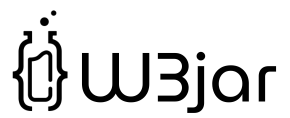How to Work with JSON Data in PHP
JSON is a lightweight data interchange format commonly used for data transmission between a server and a web application.
PHP provides robust support for working with JSON data, making it easy to encode and decode JSON, manipulate data, and integrate it into your web applications.
Understanding JSON:
- JSON is a text-based data format that uses a simple syntax to represent structured data.
- It consists of key-value pairs and supports arrays, objects, numbers, strings, booleans, and null values.
- JSON is human-readable and widely supported across programming languages.
{
"name": "John",
"age": 30,
"car": null
}
Converting PHP Arrays to JSON:
In PHP, you can convert PHP arrays or objects into JSON format using the json_encode() function:
$data = ["name" => "John", "age" => 30, "city" => "New York"];
$json = json_encode($data);
print_r($json); // Output: {"name":"John","age":30,"city":"New York"}
Converting JSON data back into a PHP array:
To convert JSON data back into a PHP array or object, use the json_decode() function:
<?php
$json = '{"name":"John","age":30,"city":"New York"}';
$objectData = json_decode($json);
$arrayData = json_decode($json, true);
echo $objectData->name; // Output: John
echo $arrayData['city']; // Output: New York
Validating JSON Data:
Before decoding JSON data, you can validate it using the json_last_error() and json_last_error_msg() functions to handle potential errors:
$json = '{"name":"John","age":30,"city":"New York"';
if (json_last_error() === JSON_ERROR_NONE) {
$data = json_decode($json);
} else {
echo "JSON decoding error: " . json_last_error_msg();
}
Reading and Writing JSON Files:
You can read JSON data from a file using file_get_contents() and then decode it:
$json = file_get_contents('data.json');
$data = json_decode($json);
To write JSON data to a file, encode your data and use file_put_contents():
$data = ["name" => "Jane", "age" => 25, "city" => "Los Angeles"];
$json = json_encode($data);
file_put_contents('output.json', $json);
